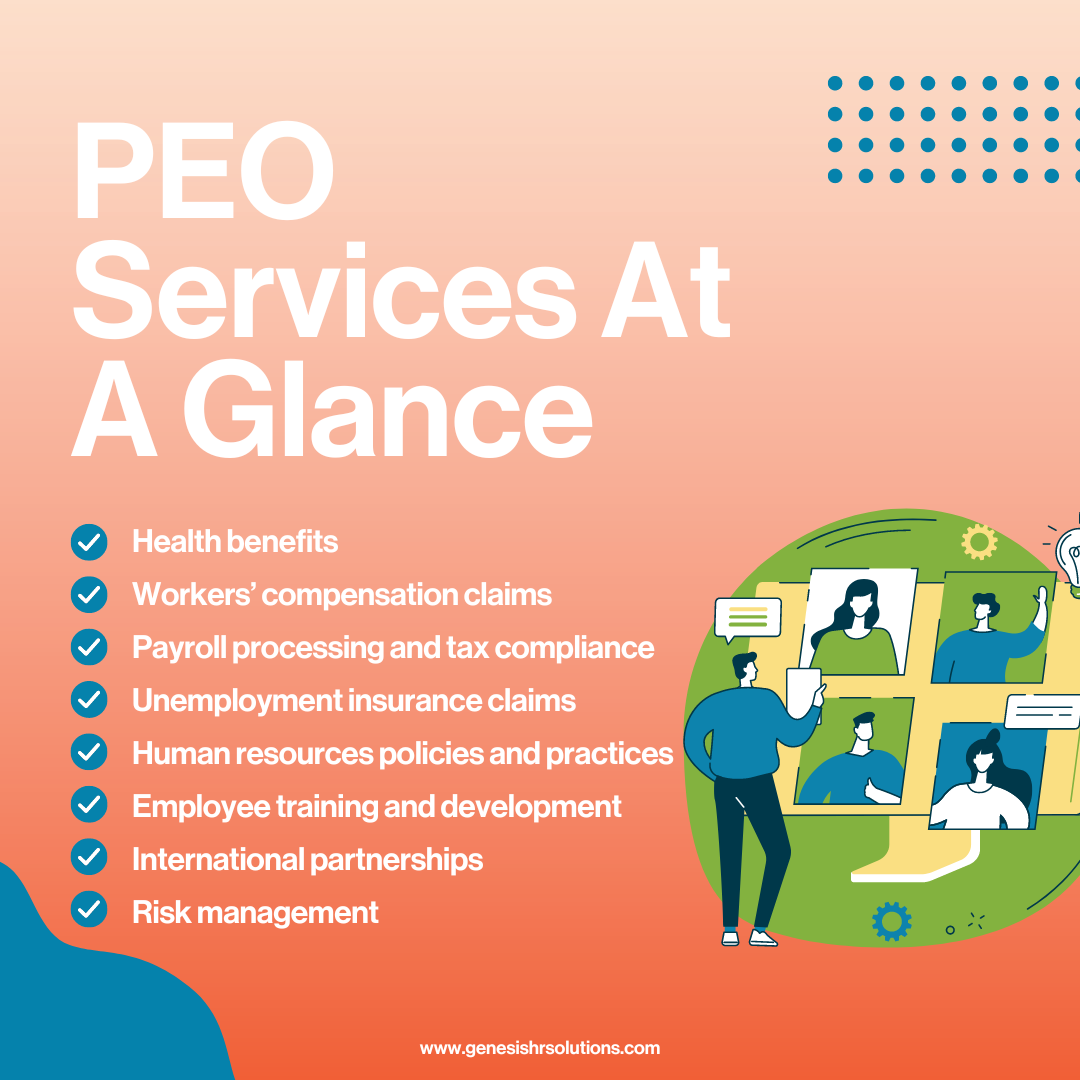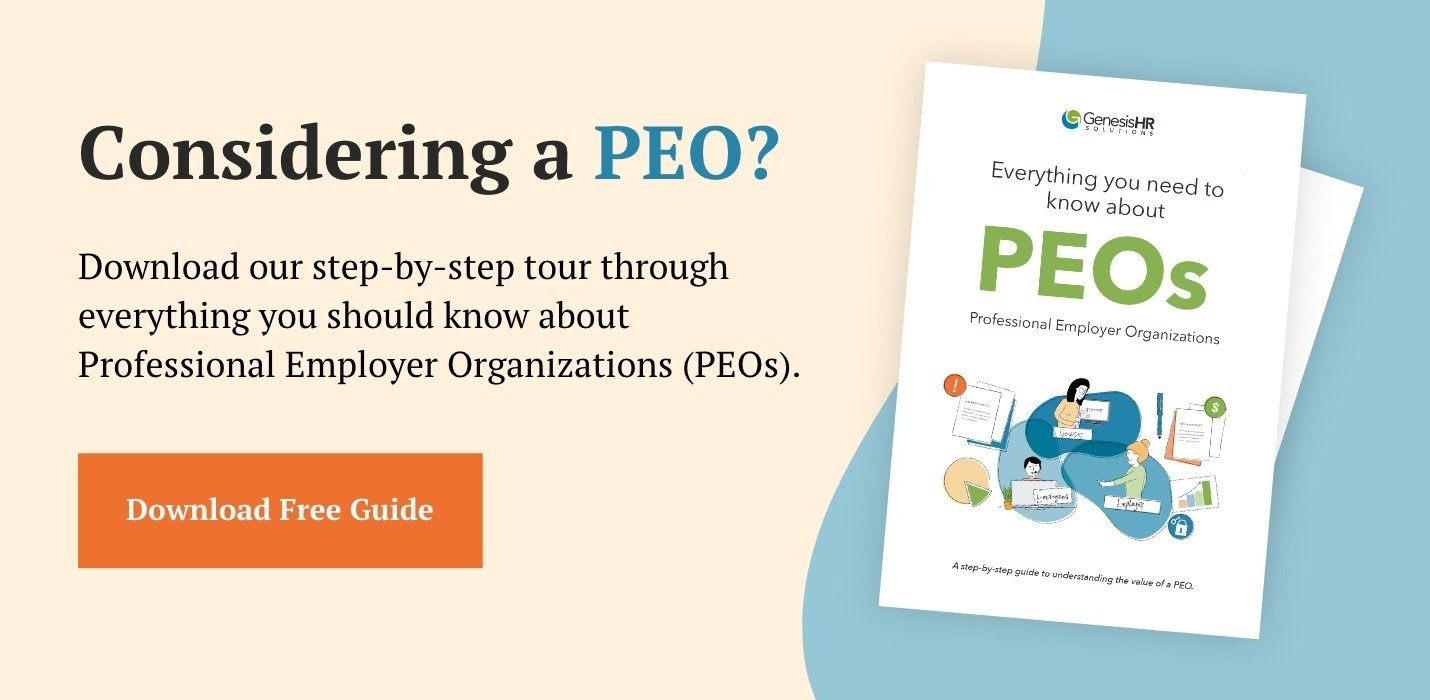As the world becomes more globalized and an increasing number of employees are working across international borders, employers of record (EOR) are becoming more commonplace. Some foreign entities establishing their first U.S.-based offices are interested in finding out whether or not an EOR is a good option for them, or if there is another option that may provide them the services they need. In this article, we’ll discuss the differences between a professional employer organization (PEO) vs. EOR, and why companies should consider a PEO first.
EOR vs. PEO: What’s the difference?
An employer of record (EOR) is a third-party company that takes over as the legal employer for your workforce. An EOR is responsible for handling payroll (ensuring that all necessary withholdings and deductions are made) and meeting other compliance obligations of employers.
Organizations that engage an EOR are essentially outsourcing their employees to a third party. While employers can still provide direction and manage employee tasks, they don’t have tax responsibilities, they are paid through a third party, etc.
In most cases in the U.S., foreign companies are required to get a federal employer ID number and provide benefits; an EOR can help them do those things without having to establish a business locally.
On the other hand, organizations that work with a professional employer organization, or PEO, have what’s referred to as a co-employment relationship. Co-employment is the contractual allocation and sharing of certain employer responsibilities between a PEO and client.

In a PEO partnership, the PEO works with the employer to provide human resource services and expertise the employer may not be able to provide alone. A PEO allows its clients to outsource many of their human resource functions, share employment liability, and, oftentimes, gain economies of scale to bring an improved benefits package to their employees.
PEO services vary in scope. Most offer cornerstone services, handling things like:
- Health benefits
- Workers’ compensation claims
- Payroll processing and tax compliance
- Unemployment insurance claims
- Human resources policies and practices
PEOs can also offer more specialized services, including (but not limited to):
- Employee training and development
- International partnerships
- Risk management
So which is better fit for your organization? Of course we’re a little biased (we are a PEO, after all!) but we think it’s for a good reason. Keep reading to find out more.
Employer Of Record vs. PEO: A Brief Comparison
1. PEOs better represent the employer.
As a PEO partner, you maintain 100% control over your company culture, because you aren’t outsourcing your entire business—just your HR functions. You will continue to have a role and responsibility in selecting benefits and establishing values (which are reflected in comprehensive benefit plans, 401k investment options, contributions, etc.)—everything that makes your company a great place to work. Under an EOR, this is fully the responsibility of the third party, with some guidance of the client. This is very different.
2. PEOs are focused on relationships with both employers and employees; EORs don’t feel people-focused.
In a PEO arrangement, employees remain connected to the employer because PEOs work with employers to strengthen the workforce and enhance the work experience for employees. A PEO provides valuable HR platforms and tools, helps employers establish culture through handbooks, and gets involved as needed; but the ultimate task of employee relationship-building is up to the employer. In an EOR scenario, employees really work for EOR and provide services for the client.
As an employee, if I commit myself to a business, I want the business to commit to me. EORs don’t really allow for that because they aren’t structured this way; there is an entity standing between the employee and the client employer. Another consideration: Many EORs handle limited duration contracts and projects, meaning there’s not much team-building or loyalty. An EOR is not a relationship-based employment relationship and isn’t focused on the people.
3. EORs are expensive.
Employers pay a premium for EOR services. Their cost is much higher because they take full employer responsibility and liability; something that may not be in your company’s best interest. Engaging an EOR essentially puts them in the driver’s seat, with you handing over all the control. Before you do that, consider if that’s really what you want in the long run.
Could GenesisHR be a better fit than an EOR?
If you’re a foreign company interested in working in the U.S., then a PEO might be a better fit than a global EOR. We’d love to talk with you about how partnering with us might be the foot-in-the-door you need to operate your business in the U.S. Check out our employees everywhere page, and if you have any questions, please reach out to us!





